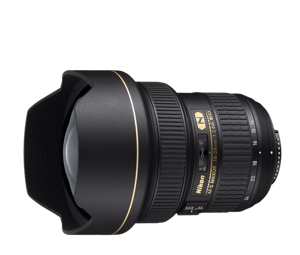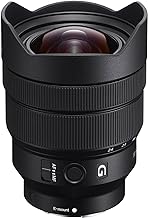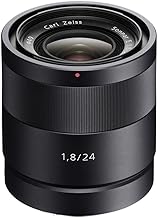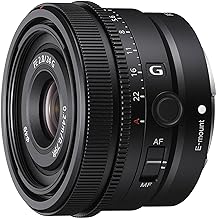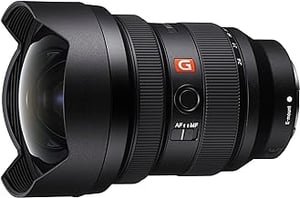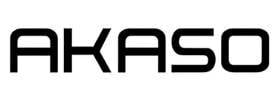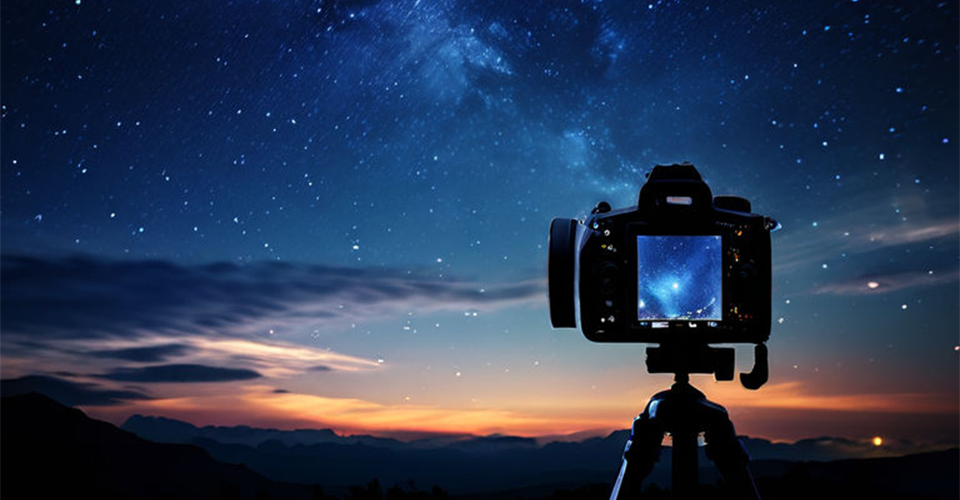
Best Lens for Astrophotography to Use Leave a comment
Astrometry is an exciting branch of photography that enables photographers to photograph space or the night sky stars, the Milky Way, galaxies, or even shooting stars. However, capturing such images requires the use of the appropriate lens. Of course, a suitable lens for astrophotography can mean all the difference to the shots produced, whether they are sharp, detailed, or complete of vibrant coloration. In this guide, I’ll show you the most suitable lenses for astrophotography and Canon, Nikon, and Sony cameras. In this article, I will provide information and recommendations for new and experienced photographers when selecting the perfect lens for astrophotography for their equipment.
Potential astrophotographers must understand which parameters define ideal lenses for this type of photography before considering particular lenses. Here are some of the most critical factors to consider when selecting the best lens for capturing the night sky.
Factors to be Consider When Choosing Best Lenses
Aperture Size
This means that, in astrophotography, the aim is to collect as much light as possible. The other important lens characteristic is the wide aperture, which has a low f-number, for example, f/1.4 or f/2.8. Since we will shoot at night, a low amount of light can reach the camera sensor if the lens’s aperture is not wide enough. Niches also allow faster shutter speeds, making it easy to minimize star trails when shooting astronomical objects.
Focal Length
The field of view, which depends upon the focal length, also has a great influence on the length of the sky that one can cover. The most commonly used lenses are the wide-angle ones, ranging between 14mm and 35mm because they are used to capture as vast an area in the sky as possible, such as the Milky Way. They also reduce the movement of the images of celestial objects, hence providing a sharper image.
Sharpness and Optical Quality
Transmission and the quality of the lens are crucial while photographing space. A sharp lens and low chromatic aberration are preferable while taking pictures of stars and other celestial objects. Distortion can cause blurring and color fringing, which spoil a good shot despite all efforts to take the perfect photo.
Build and Weight
This makes an astrophotography lens perfect because photography usually involves very long exposures outdoors. In addition, a lens that is easy to carry and handle during nighttime shoots and has weather-resistant qualities means one can shoot at any time.
Why are Canon Lenses Effective for Astrophotography?
Canon lenses are flexibly built, have high optics, and have a vast number of variants available. Canon’s L-series lenses are especially preferred for astrophotography since their pro lens construction results in low levels of chromatic aberration and distortion. The best Canon astrophotography lens mostly has a large aperture, a wide focal length, and high image clarity.
Best Canon Lens For Astrophotography
Thus, it remain crucial to find a lens that shoots the night sky in the best possible way and if reviewing the best lens for astrophotography for Canon cameras. The most frequently used one I always found is the Canon EF 16-35mm f/2.8L III USM; it is quite famous for being a perfect wide lens and works well in low light situations. It is very useful for scouting large areas of the milky way or wide open fields of stars and prevents lens distortion. If a photographer is working with Canon’s mirrorless systems, there is another great option in Canon RF 15-35mm f/2.8L IS USM for astrophotography. It has a wide walk focal length and image stabilization which makes it among the best lens for astrophotography canon which will guarantee you of quality photograph in a low light. When shooting star trails or the night sky, these Canon lenses are built to handle the job for you.
First on the list of the best Canon lens for astrophotography is the Canon RF 15-35mm f/2.8L IS USM. Developed solely for the mirrorless cameras of Canon, it has image steadying that proves useful in taking clear shots at night – no tripod needed. The focal length of the lens is 15mm which makes it good for broad shots, and shaping night scenes, while the aperture of f/2.8 will ensure its gathers enough light. First, it’s very important to understand if enthusiasts wish to try astrophotography with their camera or they are regular astrophotographers then it is very critical to choose the best Canon lens for astrophotography.
If you are in search of the best astrophotography lens especially for Canon cameras, then you must be interested in wide aperture lenses that collect as much light as possible. Extremely popular among astrophotographers is Canon EF 24mm f/1.4L II USM – a lens that is a part of prime lenses and which performs brilliantly in low light conditions which are most suitable for shooting the stars and other very faint objects. Its f/1.4 aperture means it lets in a lot of light and that you are able to to shoot at shorter exposure times thus avoiding star trails and blur. This makes it among the best astrophotography lenses for Canon consumers with keen emphasis towards the best crisp quality shoot regardless of the prevailing light intensity.
Canon RF 15-35mm f/2.8L IS USM
| Key Specs | Details |
|---|---|
| Focal Length | 15 to 35mm |
| Maximum Aperture | f/2.8 |
| Lens Mount | Canon RF |
| Lens Format Coverage | Full-Frame |
| Focus Type | Autofocus |
| Image Stabilization | Yes |
| Filter Size | 82 mm (Front) |
| Minimum Aperture | f/22 |
| Angle of View | 110° 30' to 63° |
| Minimum Focus Distance | 11.02" / 28 cm |
| Maximum Magnification | 0.21x |
| Optical Design | 16 Elements in 12 Groups |
| Diaphragm Blades | 9, Rounded |
| Dimensions (ø x L) | 3.48 x 4.99" / 88.5 x 126.8 mm |
| Length at Maximum Extension | 5" / 127 mm |
| Weight | 1.85 lb / 840 g |
The Canon RF 15-35mm f/2.8L IS USM could also deserve the title of best astrophotography lens for Canon, especially for those photographers using the latest Canon’s mirrorless cameras. The successful focus of this lens is its focal length of 35mm, coupled with the inclusion of an optical image stabiliser; the shots can be taken at night without having to make use of slow exposure times. If you are shooting the Milky Way or really any galaxy, choosing the appropriate astrophotography lens for Canon model will significantly improve the chances of getting detail with the least amount of light.
When it comes to astrophotography, select Canon lens are perfect for the putting together breathtaking shots of the night sky. There are fewer lenses within the Canon range that are better suited for astrophotography than the Canon EF 16-35mm f/2.8L III USM due to a combination of factors such as wide aperture, and balanced sharpness these lenses minimize both distortion and chromatic aberration. It also has a good range in focal length allowing it to be used in all manner of astrophotography techniques including star trails and very wide Milky Way images. It may be coupled with a Canon brand full frame camera and considering its superb performance, it can well capture the true image of the night sky in high definition.
Best Lens for Astrophotography Nikon
Nikon AF-S NIKKOR 14-24mm f/2.8G ED
| Key Specs | Details |
|---|---|
| Focal length | 14 to 24mm |
| Maximum Aperture | f/2.8 |
| Lens Mount | Nikon F |
| Lens Format Coverage | Full-Frame |
| Focus Type | Autofocus |
| Image Stabilization | No |
| Filter Size | No |
| Minimum Aperture | f/22 |
| Angle of View | 114° to 84° |
| Minimum Focus Distance | 11.02" / 28 cm |
| Maximum Magnification | 0.15x |
| Optical Design | 14 Elements in 11 Groups |
| Diaphragm Blades | 9, Rounded |
| Dimensions (ø x L) | 3.86 x 5.18" / 98 x 131.5 mm |
| Length at Maximum Extension | 5.18" / 131.5 mm |
| Weight | 2.2 lb / 1000 g |
In as much as choosing the best lens for astrophotography Nikon cameras, Nikon’s NIKKOR lenses are well known for offering the best when it comes to sharp and quality images. The best a option is Nikon AF-S NIKKOR 14-24mm f/2.8G ED which is a wide lens that is suitable for very low light photography. With a f/2.8 aperture, a lot of light enters the sensor, and that is why photographers use it in the list of best lens for astrophotography Nikon that offers one of the best telescopic lenses suitable for those who want to get bright and high-quality images of space. Due to its Place Sharpest at the Edge, even Stars at Four Corners of Frame Stay Sharp.
Boasting an impressive focal ratio of f/1.8, light collection is unparallelled, a feature that will prove invaluable when engaged in astrophotography; thus, it is possibly the best lens for astrophotography to Nikon users. Whether you want to photograph vast star fields or concentrate on certain stars or other celestial objects Nikon offers an excellent choice of lenses that will help achieve top quality astrophotography.
Best Lens for Astrophotography Sony
Sony FE 24mm f/1.4 GM
| Key Specs | Details |
|---|---|
| Focal Length | 14 to 24mm |
| Maximum Aperture | f/2.8 |
| Lens Mount | Nikon F |
| Lens Format Coverage | Full-Frame |
| Focus Type | Autofocus |
| Image Stabilization | No |
| Filter Size | No |
| Minimum Aperture | f/22 |
| Angle of View | 114° to 84° |
Sony has advanced so much in the astrophotography scenario especially when it comes to the mirrorless and quality lenses. Sen hands down the best Sony lens for astrophotography is that lens that has wide aperture and one of the best optical quality, and the Sony FE 24mm f/1.4 GM is one prime lens with really wide aperture. The lens has a bright f/1.4 aperture which makes a lot of light to enter the camera a feature that makes it efficient for astrophotography which makes this lens one of the best for Sony. They excel in minimizing noise, irrespective of the fact that one is prie for astrophotography, then they will come out as rich and vibrant to the utmost.
Another good candidate for the best Sony lens for astrophotography is the Sony FE 14mm f/1.8 GM which has an incredibly wide-angle field of view, perfect for capturing broad landscapes with broadly-lit features. Its f/1.8 aperture can help shoot with the shorter exposure while the lens collects enough light at the same time. The best sony lens for astrophotography is not only capable of collecting a huge amount of light but also free from any distortion to star shapes which is an added advantage in Milky Way and other large subjects. Whether photographing expansive vistas of space or focusing primarily on a few objects in a scene, lens mechanisms bring out the best in everyone’s advanced astrophotography.
Why Sony Lenses are Great for Astrophotography
The Sony FE 24mm and FE 14mm lenses are perfect for photographers who require a fast aperture and legendary image resolution for astrophotography. These lenses are perfect for anything from the vast Milky Way images themselves to the details of the stars and constellations and vast celestial events.
When recommending the best astrophotography lenses for Canon, Nikon, and Sony, looking at factors such as aperture, focal length, optical quality, and price is crucial. Every brand presents excellent lenses that can fulfill different purposes in astrophotography, whether the large scenery or the tiny celestial objects.Table of Comparision
| Feature | Canon RF 15-35mm f/2.8L IS USM | Nikon AF-S NIKKOR 14-24mm f/2.8G ED | Sony FE 24mm f/1.4 GM |
|---|---|---|---|
| Aperture | f/2.8 | f/2.8 | f/1.4 |
| Focal Length | 15-35mm | 14-24mm | 24mm |
| Best Use | Wide Milky Way Shots | Panoramic Night Sky | Detailed Night Sky Photography |
| Image Stabilization | Yes | No | No |
| Weight | 840g | 1000g | 445g |
| Lens Type | Zoom | Zoom | Prime |
| Minimum Focus Distance | 0.28m | 0.28m | 0.24m |
| Filter Thread | 82mm | None | 67mm |
| Weather Sealing | Yes | Yes | Yes |
| Price | High | High | High |







